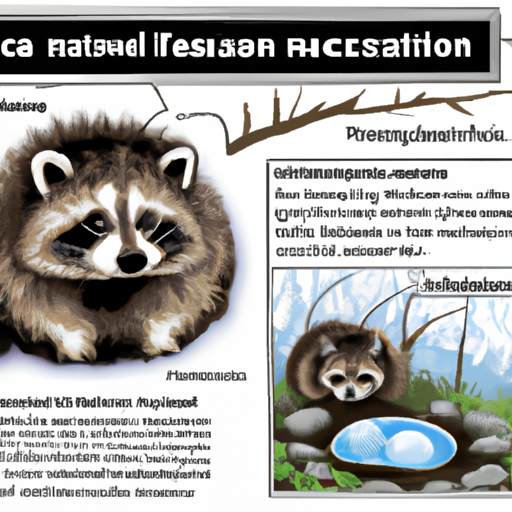Raccoon dogs, or “tanuki” as they are known in Japan, are an intriguing species with a rich history and unique characteristics. Despite their name, these creatures are not actually raccoons, but are the only extant species in the genus Nyctereutes. With a face like a fox, a body like a dog, and markings like a raccoon, they truly are a one-of-a-kind animal.
H2: The Physical Attributes of Raccoon Dogs
Raccoon dogs share some physical characteristics with both raccoons and dogs, hence their name. They have a body length of 50-65 cm, and their weight can range from 4 to 10 kg. Their coat is dense and long, perfect for surviving in the cold climates they inhabit.
Here is a brief comparison table of raccoon dogs with raccoons and dogs:
| Species | Average Weight (kg) | Average Length (cm) | Fur Type |
|---|---|---|---|
| Raccoon Dogs | 4-10 | 50-65 | Dense, Long |
| Raccoon | 3.5-9 | 41-70 | Dense, Short |
| Dogs (Average) | 5-50 | 25-100 | Varies |
H2: The Habitats and Distribution of Raccoon Dogs
Raccoon dogs are native to East Asia, but they have also been introduced in parts of Europe. They have the ability to adapt to various environments. They prefer forested areas, but can also be found in urban areas.
- East Asia: This is the native range of the raccoon dog. They are widespread in countries like Japan, China, and Russia.
- Europe: Raccoon dogs were introduced in the western parts of the Soviet Union in the early 20th century. They have since spread across northern and eastern Europe.
H2: The Behaviour and Lifestyle of Raccoon Dogs
These creatures are known for their interesting behavior. They are mostly nocturnal, and unlike other canids, they hibernate in winter. They are also known for their monogamous relationships, a trait uncommon in most mammalian species.
Let’s take a look at some of their behavior traits:
- Nocturnal: Raccoon dogs are most active during the night.
- Hibernation: They are the only canids who hibernate during the winter.
- Monogamy: They form pair bonds that last for life.
H2: The Cultural Significance of Raccoon Dogs
In Japanese folklore, raccoon dogs, or tanuki, are often depicted as mischievous and jolly, with the ability to shape-shift. They are symbols of good fortune and prosperity.
H2: The Conservation Status of Raccoon Dogs
The International Union for Conservation of Nature (IUCN) has listed raccoon dogs as ‘Least Concern’. However, they are often hunted for their fur, particularly in China and Russia. There is also concern about their impact on local wildlife in areas where they have been introduced.
Frequently Asked Questions
Q: Are raccoon dogs related to raccoons?
A: No, despite their name, raccoon dogs are not related to raccoons. They belong to the canine family.
Q: Do raccoon dogs make good pets?
A: Raccoon dogs are wild animals and do not make suitable pets. They have specific needs that can be challenging to meet in a domestic setting.
Q: Are raccoon dogs dangerous?
A: Raccoon dogs are generally not dangerous to humans. However, they can carry diseases that can be transmitted to people and pets.
Q: Do raccoon dogs hibernate?
A: Yes, unlike most canids, raccoon dogs hibernate during the winter.
Q: What do raccoon dogs eat?
A: Raccoon dogs are omnivores. They eat a variety of foods, including insects, rodents, frogs, fruits, and berries.
In conclusion, raccoon dogs are a fascinating species with unique attributes and an interesting cultural significance. While they have adapted to various habitats across the globe, their impact on local ecosystems and their own conservation status are topics that warrant attention.



